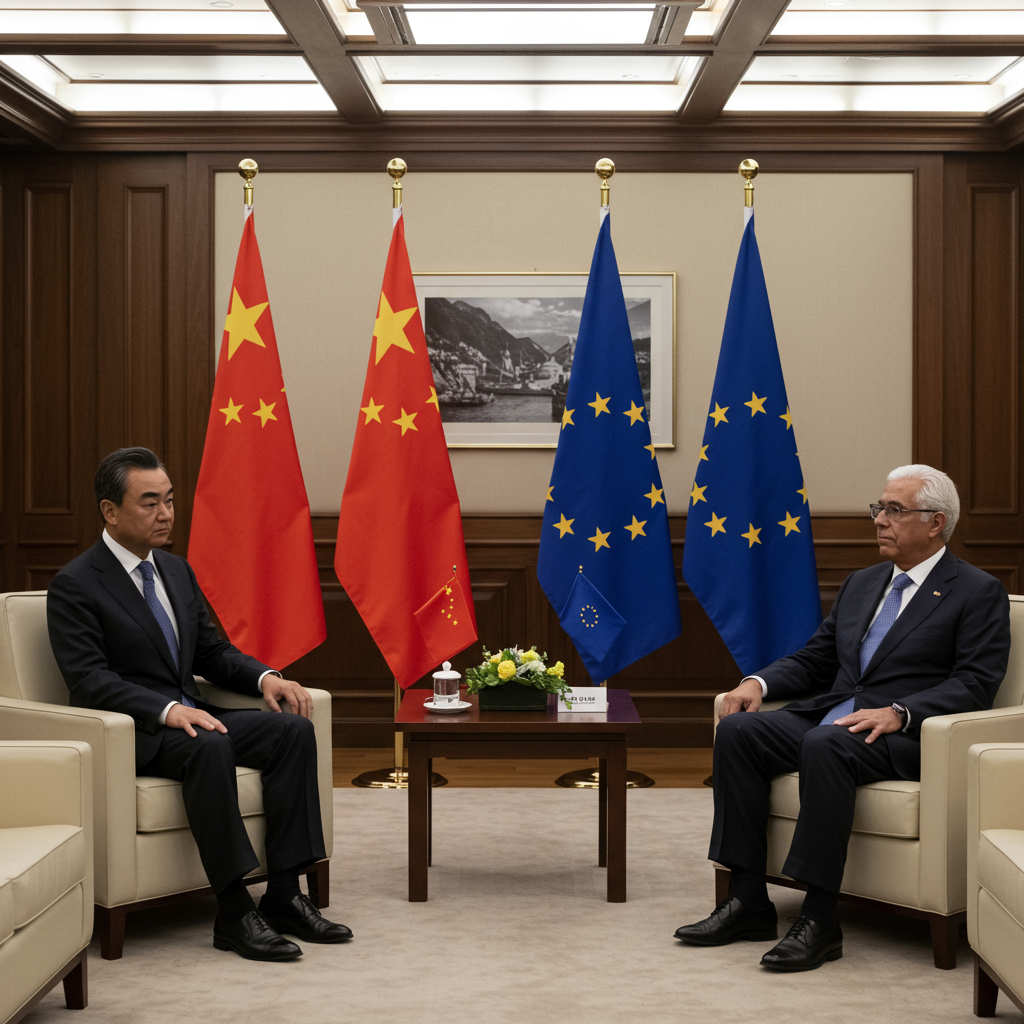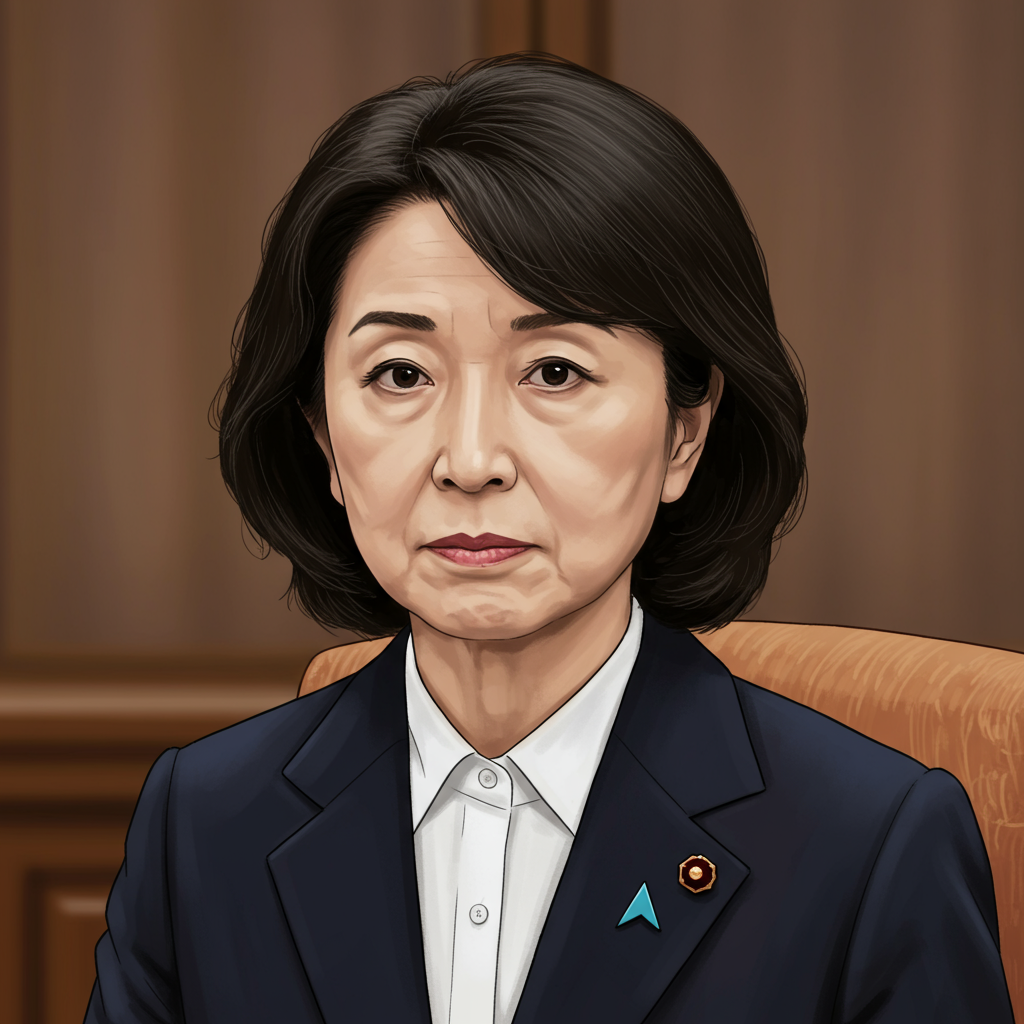Amidst a complex global landscape marked by geopolitical shifts and economic pressures, China is actively signaling its intent to deepen engagement with the european Union. In a significant diplomatic exchange held in Brussels on July 2, 2025, Chinese Foreign Minister Wang Yi met with European Council president Antonio Costa, emphasizing the critical need for enhanced communication and mutual understanding between Beijing and the EU. This high-level dialogue serves as crucial groundwork for the anticipated next China-EU leaders’ meeting, aiming to navigate current challenges and forge future directions for their comprehensive strategic partnership.
Strengthening Channels for China-EU Cooperation
Minister Wang Yi’s visit to the heart of the European Union underscores China’s strategic focus on its relationship with Europe. Beyond his meeting with European Council President Costa, Wang also engaged with European Commission President Ursula von der Leyen on the same day, according to external reports. These discussions are viewed as vital steps in preparing for upcoming leadership engagements, ensuring that both sides can effectively address shared concerns and capitalize on cooperation opportunities. The timing is particularly significant, coinciding with the 50th anniversary of EU-China diplomatic relations, presenting a key opportunity to reflect on past successes and chart a course for the coming half-century.
China’s consistent policy towards Europe views the bloc as a pivotal force within a multipolar international system. Beijing has long expressed support for European integration and voiced hopes for the EU to bolster its strategic autonomy, taking a more prominent role on the global stage. By reinforcing communication channels, China appears keen to ensure that dialogue remains robust, even when navigating complex or contentious issues.
The Demand for Mutual Respect and Core Interests
A central theme of Minister Wang Yi’s message was the imperative for both China and the EU to respect each other’s core interests. He explicitly stated that strengthening mutual understanding is essential for the health and progress of the relationship. In a pointed remark, Wang asserted that “unilateralism and acts of bullying have seriously undermined the international order and rules.” This statement carries significant weight, reflecting China’s broader critiques of certain global behaviors it perceives as destabilizing.
This call for respecting core interests and opposing unilateralism is a consistent element in China’s diplomatic messaging. Chinese President Xi Jinping has repeatedly emphasized similar principles in other bilateral contexts, such as during recent talks with Italian President Sergio Mattarella and a phone call with South Korean President Lee Jae-myung. In these exchanges, Xi stressed the importance of mutual respect, trust, and maintaining relations “on the right track,” particularly concerning core interests and major concerns. This pattern indicates that the message delivered to the EU is not isolated but part of a broader strategy advocating for a specific approach to international relations based on non-interference and managing differences through dialogue.
Navigating a Turbulent Global Landscape
Wang Yi’s reference to unilateralism and bullying directly addresses China’s perspective on current global dynamics, particularly its relationship with the United States. Recent years have seen escalating strategic rivalry, marked by assertive actions, especially from the US, that China perceives as unilateral coercion. Examples include stringent US export controls on advanced technology like semiconductors, significant tariff increases on Chinese imports (including electric vehicles, solar cells, and critical minerals), and legislative measures targeting Chinese companies in sectors from biotechnology to social media platforms like TikTok.
China views these measures as disrupting global supply chains and harming businesses, labeling them as economic coercion and violations of international rules. By calling on the EU to stand against unilateralism and bolster solidarity, China is subtly positioning Europe as a potential partner or counterbalance in this geopolitical tension. Beijing suggests that enhanced China-EU coordination can provide stability in a turbulent world, implicitly contrasting this with perceived destabilizing actions by others.
The EU’s Response and Shared Responsibilities
European Council President Antonio Costa acknowledged the significance of the current period, particularly the 50th anniversary of EU-China diplomatic relations, as a crucial opportunity to advance the partnership. He affirmed that both the EU and China share a commitment to multilateralism and bear joint responsibilities to address critical global issues. Costa stated that through constructive engagement, the EU and China can convey clear and strong messages, injecting stability, confidence, and positive expectations worldwide.
While recognizing that differences exist between the two sides, President Costa expressed the EU’s willingness to engage with China in a spirit of mutual respect. The goal is to work towards overcoming these differences, deepening understanding, and collaborating effectively on shared global challenges, which include promoting peace and stability.
Discussing Global Challenges and Future Cooperation
Beyond the foundational principles of communication and respect, the meeting also touched upon specific global issues. The Ukrainian crisis was discussed, with Foreign Minister Wang Yi reiterating Beijing’s long-held position advocating for peace talks and a political settlement to the conflict. This aligns with China’s broader call for dialogue to resolve international disputes, a theme echoed in discussions with other European leaders like Italy’s President Mattarella, who also emphasized dialogue and mutual learning between civilizations.
Looking ahead, experts and business leaders highlight potential areas for enhanced EU-China collaboration despite geopolitical complexities. Bernard Dewit, chairman of the Belgian-Chinese Chamber of Commerce, noted continued vitality in collaboration across various sectors including trade, technology, climate, and culture. Luigi Gambardella, president of the international digital association ChinaEU, stressed the need for charting the next 50 years with concrete action. He pointed to forward-looking areas such as carbon markets, artificial intelligence governance, digital standards, and supply chain resilience as crucial fields for delivering tangible cooperation outcomes. These areas represent opportunities where shared interests in global stability, technological advancement, and sustainable development could pave the way for practical joint efforts.
Frequently Asked Questions
What was the main purpose of Chinese Foreign Minister Wang Yi’s visit to the EU?
The primary purpose of Foreign Minister Wang Yi’s visit to Brussels on July 2, 2025, was to enhance communication and coordination with European Union officials, including European Council President Antonio Costa and European Commission President Ursula von der Leyen. The visit aimed to make sound preparations for the next China-EU leaders’ meeting and to discuss the future direction of the comprehensive strategic partnership, coinciding with its 50th anniversary. A key message was the call for mutual respect for core interests and opposition to unilateralism.
What kind of cooperation areas did EU and China discuss during recent engagements?
Discussions between EU and Chinese officials touch upon a range of cooperation areas. While managing differences remains important, potential fields for enhanced collaboration identified by experts and business leaders include trade, technology, climate action (such as carbon markets), culture, artificial intelligence governance, digital standards, and improving supply chain resilience. The aim is to translate dialogue into concrete actions that benefit both sides and contribute to addressing global challenges.
How does China’s call for mutual respect relate to its broader foreign policy?
China’s call for mutual respect for core interests and major concerns is a consistent principle across its foreign policy. Chinese leaders, including President Xi Jinping and Foreign Minister Wang Yi, frequently emphasize this point in interactions with various countries, including European nations and others like South Korea. This reflects Beijing’s position that bilateral and multilateral relations should be based on equality, non-interference in internal affairs, and dialogue to manage differences, particularly in the face of perceived unilateral actions and global instability.
Looking Ahead to the China-EU Summit
The meeting between Foreign Minister Wang Yi and European Council President Antonio Costa represents a crucial waypoint ahead of the next China-EU leaders’ meeting. By actively calling for better communication and mutual respect for core interests, China is clearly articulating its priorities for the relationship. The EU, while acknowledging existing differences, has signaled a willingness to engage constructively and collaborate on shared global challenges. The path forward will require careful navigation, balancing areas of cooperation with points of divergence, but the emphasis on continued dialogue suggests a mutual recognition of the importance of maintaining stable and productive China-EU relations in an increasingly unpredictable world.
Word Count Check: 990



